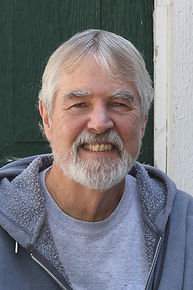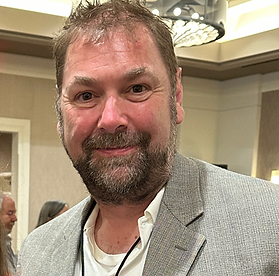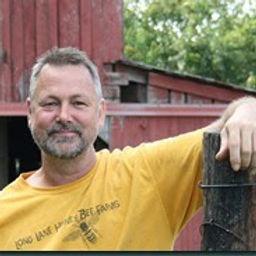
The 2026 Nevada State Beekeepers Conference

Dr. Jon Zawislak
Dr. Jon Zawislak is an assistant professor of apiculture and urban entomology for the University of Arkansas System Division of Agriculture. He has worked and played with honey bees since 1998, and is equally at home in the bee yard, the laboratory or the classroom. Each year he presents lectures, workshops and short courses for new and experienced beekeepers throughout Arkansas and beyond. His teaching emphasizes the biology and behavior of honey bees as the cornerstones of keep them productive and healthy. He also spreads the word about the importance of pollinators to the non‐ beekeeping public. Jon has a background in botany and entomology, and is a certified Master Beekeeper through the Eastern Apiculture Society. He and his family operate Walnut Valley Honey Farm in Little Rock, Arkansas, producing good products from the hive and supplying pollinators for area community gardens.

Dr. Priya Chakrabarti Basu
Dr. Priya Chakrabarti Basu is an Assistant Professor at the Department of Entomology, Washington State University. Priya is also a courtesy faculty at Oregon State University. She was previously an Assistant Professor at Mississippi State University. Priya studies the interactive impacts of multiple stressors on bees, for example poor nutrition, pesticides, climate change and diseases. She uses a wide array of multidisciplinary techniques across fields such as physiology, toxicology, functional biology, multiomics-based approaches and neuroethology to address her research questions. She is currently the Secretary/Treasurer of the American Association of Professional Apiculturists, the Vice-President Elect of the PBT Section of the Entomological Society of America and the North American Chair of the nutrition taskforce for COLOSS, the international bee organization. She was also the past Chair of the Early Careers Professionals Committee of the Entomological Society of America and the Vice-President of Mississippi Entomological Association. In addition to the research community, Priya enjoys teaching and working with stakeholders, policymakers and the general community in protecting bee pollinators and raising pollinator awareness. Priya is also a children’s book author to help spread pollinator awareness among young readers. More information about her lab’s research can be found at: www.priyadarshinichakrabarti.com.

Bob Binnie
Bob Binnie is a commercial beekeeper and honey packer and operates Blue Ridge Honey Company along with his wife Suzette in the southern Blue Ridge Mountains of northeast Georgia and Western North Carolina.
Beginning his career in 1981 in Rogue River, Oregon Bob has since had bees in nine states, been President of the Georgia Beekeepers Association, president of the Northeast Georgia Mountain Beekeepers Association, president of The Macon County Beekeepers Association in Franklin, North Carolina, and was voted Georgia Beekeeper Of The Year in 2003.

Dr. David Tarpy
David Tarpy is a Professor of Applied Ecology and the NC Extension Specialist in honey bees. Among other extension initiatives, his program runs the Queen & Disease Clinic and the Beekeeper Education & Engagement System (or BEES). His research interests focus on the biology and behavior of honey bee queens in order to better improve the overall health of queens and their colonies. His lab focuses on the reproductive potential of commercially produced queens, testing their genetic diversity and mating success in an effort to improve queen quality. He has served on the boards of the NC State Beekeepers, the Eastern Apiculture Society, the Bee Informed Partnership, and the editorial boards of the top two scientific journals on apiculture. He is a highly sought-after speaker for clubs around the country and is in high demand to talk about the research coming out of his lab.

David Burns
David started beekeeping in the early 1990s and started a beekeeping business several years later. In 2006 David began blogging and uploading beekeeping videos to YouTube. His YouTube channel has grown to around 160,000 subscribers. He also produces a weekly beekeeping podcast.
In 2020 David & Sheri were approached by Rockridge press to write the book “Backyard Beekeeping: Everything You Need to Know to Start Your First Hive.”
He has produced a suite of online beekeeping courses that have become very popular among new beekeepers.
David produces queens, nucs and packages. In order to make sure beekeepers had the best and latest scientific information on bees and beekeeping, David became a Certified Master Beekeeper through the Eastern Apicultural Society (2010). He also writes a monthly column for Bee Culture Magazine.
David hosts a very popular beekeeping livestream every Thursday night at 7pm central time, on YouTube, to answer beekeeper’s questions and shares a weekly teaching. He also has a mentorship program known as Beeteam6, talks throughout the country at beekeeping conferences and is heard frequently on radio shows and podcasts.

Dr. Joe Carson
Dr. Carson grew up in the Matanuska Valley of South Central Alaska. Joe and and his wife
Holly have been married for 48 years and have 3 children and 14 grandchildren - along with
Honey Bees, Miniature and Giant Schnauzer Dogs, Dexter Cattle, Dorper Sheep with many
ducks and chickens.
After entering the University of Alaska at the age of 16 Joe decided after 2 years studying
Accounting, Macro and Micro Economics with an emphasis in the transdisciplinary research field of heterodox economics, Econophysics was not the direction he wanted to continuing pursuing.
After much schooling with multiple degrees, Gastroenterology and Anthropological Medicines became his passion and direction. Having a keen interest in honeybees as well as the medicinal products from the hive, Alaska Heavenly Honey was formed followed closely by Complete Bee Honey Bee Food Supplements Company, eKoBeekeeping Supply, Dr. Carson’s Pet Food Supplements, Dr. Carson’s Personal Care and Health and Wellness Nutritional Products. Dr. Carson’s products are currently available in about 60+ countries throughout the world.
Dr. Carson has spent over 8 years on the Board of Directors for American Beekeeping
Federation, past Chairman of Research for American Beekeeping Federation, past American delegate for international beekeeping symposium “Apimondia”, State representative for American Honey Producers, Board of Directors for Western Apicultural Society as well as past Vice President. Dr. Carson has also been visiting professor in many colleges and universities on 5 continents.
Today Dr. Carson spends his time working, teaching on nutritional deficiencies as well as pest/disease treatments for honeybees, humans, bovine, equine, K-9, etc. A healthy gut biome, teeming with diverse microbes, is crucial for overall wellness, acting as a
cornerstone for strong immunity, efficient nutrient absorption, stable mood (via the gut-brain axis), and protection against chronic issues.
























